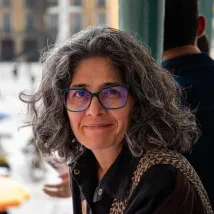Exploratory Papers
Please use this link to go to the submission page. After logging in (you might need to make a user if you don’t have one), select Author submission and in the overview of tracks, select “Exploratory Papers”.
Exploratory papers are single-blind reviewed by the ECSCW program committee and members of the community. Therefore, submissions should NOT BE ANONYMIZED. One round of peer review will lead to an accept or reject decision with no opportunity for revision and resubmission (though minor revisions may be requested for accepted papers).
Important Dates
• January 15, 2025 System open for submissions
• February 18, 2025 February 25, 2025 (extended deadline) Submissions due for Exploratory papers (23:59 AoE)
• March 18, 2025 March 25, 2025 Notification to the authors
• April 14, 2025 Deadline for camera-ready version of accepted submissions
• July 2 – 4, 2025 ECSCW 2025 Conference
Exploratory Papers
Exploratory paper submissions are smaller, focused studies, works-in-progress, or design probes, based on provocative ideas that explore a topic in new and innovative ways.
Exploratory Paper Chairs
For any queries, please do not hesitate to contact the ECSCW 2025 Exploratory Papers Chairs at ECSCW25_EP@easychair.org

Newcastle University, UK

Aalto University, Finland
Exploratory papers set themselves apart from journal-ready full papers and conference papers by moving beyond the conventional genre of a research paper as a way of inspiring discussion aimed at shaping the future of practice-focused and impact-oriented CSCW research. As such, the presentation of these papers at the conference will utilize an alternative format, such as a round table (final format yet to be determined) to encourage conversation and feedback.
This year we are particularly keen to encourage submissions that address the impact of civic and community technologies.
If you are submitting a paper on accessibility or assistive technology, please refer to the SIGACCESS guidelines on writing about disability.
Submission Format and Process
Please use this link to go to the submission page. After logging in (you need to create a new account if you don’t have one), select Author submission and in the overview of tracks select “Exploratory papers”. While the length of an exploratory paper is flexible, it should not be over 5,000 words (excluding references). Please use the following template available in Latex (Overleaf template), RTF, or MS Word format. Submissions should be in PDF format.
Selection Process
Exploratory papers are single-blind reviewed by the ECSCW program committee and members of the community. Therefore, submissions should not be anonymized. One round of peer review will lead to an accept or reject decision with no opportunity for revision and resubmission (though minor revisions may be requested for accepted papers).
Publication and Copyright Information
Accepted Exploratory Papers are slated for publication in the European Society for Embedded Technologies (EUSSET) digital library (DL) as an edited collection with an ISBN. Each paper will be assigned a DOI under the EUSSET DL License.
The EUSSET digital library (DL) is an open access repository. The EUSSET DL does not ask for a full transfer of copyright from authors. Instead, it requires only sufficient rights that allow “readers to read, download, copy, distribute, print, search and link to the full texts of articles, or use them for any other lawful purpose except where otherwise noted”. For more details please se: https://www.eusset.eu/digital-library/.
Authors of accepted Exploratory Papers will be given a choice to either (1) publish their papers in the EUSSET DL using one of the copyright options (see below); or (2) not publish in the EUSSET DL but still have an opportunity to present their work at the conference. The second choice is provided because some authors may prefer to keep their working/exploratory versions of the paper offline (not findable in a digital library) as they are preparing a full publication.
The authors will have several options when it comes to copyright upon paper acceptance:
- grant EUSSET DL a non-exclusive and irrevocable license to distribute the article and certify that he/she has the right to grant this license;
- certify that the work is available under one of the following Creative Commons licenses and that he/she has the right to assign this license:
- Creative Commons Attribution license (CC BY 4.0)
- Creative Commons Attribution-ShareAlike license (CC BY-SA 4.0)
- Creative Commons Attribution -Noncommercial-ShareAlike license (CC BY-NC-SA 4.0)
- or dedicate the work to the public domain by associating the Creative Commons Public Domain Dedication (CC0 1.0) with the submission.
In the most common case, authors have the right to grant these licenses because they hold copyright in their work.